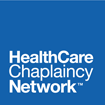Advanced Practice Spiritual Care in Palliative Care
Course Author: Sue Wintz, M.Div., APBCC, BCC
This self-guided course, Advanced Practice Spiritual Care in Palliative Care, is for experienced clinical practitioners and community leaders who work directly on and contribute to palliative care teams. The course explores specific topics in an in-depth manner that requires participants to engage in deeper critical thinking which can be articulated into advanced practice, enhancing their professional practice and leadership in the provision of spiritual care as an integral component of palliative care. It provides chaplains with the essential knowledge of the National Consensus Project’s Clinical Practice Guidelines for Quality Palliative Care, 4th edition (2018) to guide their practice.
Self-guided courses include the latest research available for the intersection of spirituality into the course topic. Students have full access to a purchased course for six months to work at their own pace. There is one test at the end of the course, and participants will have three attempts to pass or fail. Upon successful completion, students earn a certificate of completion and continuing education hours.
Learning Objectives
By the end of this course, the learner will be able to:
- Summarize the National Consensus Project’s Clinical Practice Guidelines for Quality Palliative Care, 4th Edition and identify areas in which to integrate the guidelines into one’s practice.
- Describe the ethical and moral challenges that may occur in palliative care situations, including those from faith tradition directives.
- Articulate understanding of the patient decision-making capacity process and state regulations regarding surrogate decision makers, the potential conflicts that may occur, and appropriate chaplaincy interventions.
- Distinguish and demonstrate the application of ways in which chaplains assist patients and families, in partnership with the team, in identifying the benefits and burdens of specific medical interventions.
- Recognize and formulate ways in which chaplains, spiritual care providers, and other health care clinicians can participate in the process of ethical decision-making and/or the ethics committee to support various religious, spiritual, existential, and ethical issues.
- Demonstrate expertise in palliative care communication skills through the example of participation in physician-family care conferences to utilize and develop best practices.
- Recognize and apply methods to assist in goal clarification when actively participating in family meetings.
- Identify common dynamics that may occur within families and the palliative care team that may compromise communication and effective interventions to address them.
- Identify and demonstrate competence in the use of several published models of spiritual assessment to analyze which model is appropriate in each palliative care situation.
- Define, document, formalize goals, interventions, and plans that can be articulated clearly in each palliative care situation, applied appropriately, and modified based on changes in the status of patient or situation.
- Identify, analyze, and compose an appropriate quality improvement plan for spiritual and/or chaplaincy care within palliative care.
- Understand ways in which to utilize QI data to refine chaplaincy specific and the broader palliative care programs and services.
- Demonstrate self-awareness of and the ability to set one’s own cultural values, beliefs, assumptions, and biases aside.
- Identify ways to obtain knowledge of culture, religious/spiritual beliefs, or existential norms that are unfamiliar while not engaging in stereotyping.
- Work collaboratively with the team to identify, recommend, and integrate appropriate diversity concepts, needs, and interventions into patient/family care plans.
- Identify and execute best practices for improving continuity of care.
- Create a protocol or process to ensure continuity of the patient’s spiritual care.
- Develop patient/family care resources and information to assist with the continuity of the patient’s identified spiritual care goals.
Course Outline
- Ethics
- The Physician and Family Conference
- Spiritual Assessment and Documentation
- Continuous Quality Improvement in Palliative Care
- Applying Cultural Competence and Inclusion
- Continuity of Care
Number of Continuing Education Hours: 25
Number of Continuing Education Hours for Spiritual Care for Nurses: 12
Aligns with the following Quality Indicators in What is Quality Spiritual Care in Health Care and How Do You Measure It? (HCCN 2016).
- Structural Indicator 1.A. Chaplains as certified or credentialed spiritual care professional(s) are provided proportionate to the size and complexity of the unit served and officially recognized as integrated/embedded members of the clinical staff.
- Structural Indicator 1.E. Spiritual care quality measures are reported regularly as part of the organization’s overall quality program and are used to improve practice.
- Process Indicator 2.A. Specialist spiritual care is made available within a time frame appropriate to the nature of the referral.
- Process Indicator 2.B. All clients are offered the opportunity to have a discussion of religious/spiritual concerns.
- Process Indicator 2.C. An assessment of religious, spiritual, and existential concerns using a structured instrument is developed and documented, and the information obtained from the assessment is integrated into the overall care plan.
- Process Indicator 2.D. Spiritual, religious, cultural practices are facilitated for clients, the people important to them, and staff.
- Process Indicator 2.E. Families are offered the opportunity to discuss spiritual issues during goals of care conferences.
- Process Indicator 2.F. Spiritual care is provided in a culturally and linguistically appropriate manner. Clients’ values and beliefs are integrated into plans of care.

